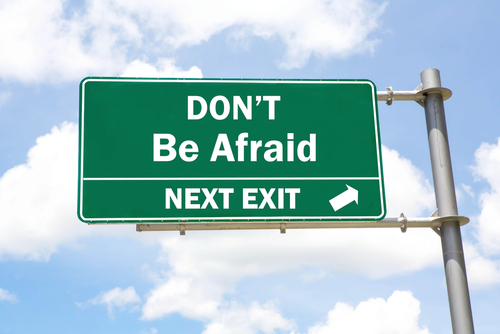My friend David was frustrated with his portfolio.
He had some investments that were doing great. But he wasn’t satisfied with his overall return.
Turns out he had a lot of stocks that he’d owned a long time. They hadn’t performed particularly well. In fact, some of them had lost significant value.
Yet he was comfortable with them, comfortable with the status quo.
The names were so familiar, he couldn’t imagine selling them.
David’s a smart guy who prides himself on rational thinking. But even the most logical among us make mental errors.
For most of our normal assessments and decisions, we rely on a more intuitive and emotional kind of thinking.
As Nobel laureate Daniel Kahneman and his colleague Amos Tversky discovered – and as Kahneman writes about in his wonderful (and richly packed) book Thinking, Fast and Slow – this kind of thinking has in part been built on experience and works great for a good portion of our lives.
Yet investment decisions don’t fall into this category.
So that you can get a sense of this yourself, let me ask you a couple of questions. Think about each before you read on:
- Would you rather be given a 50% chance of getting $10,000 or a 100% chance of getting $4,000?
- Would you rather have a 50% chance of losing $10,000 or a 100% chance of losing $4,000?
For the first question, most people would pick the sure thing and take the $4,000 they didn’t have a minute ago.
But for the second question, most people would take the risk of possibly losing $10,000 over the certainty of losing $4,000.
These two examples are so similar, and yet they lead to such predictably different choices. Why is this?
We have an intuitive, emotional and automatic aversion to risk taking when it comes to a gain. We tend to choose a sure thing over even a 50-50 chance at more than twice the gain.
We also have an intuitive, emotional and automatic aversion to losing anything, to giving up anything – even something of little or no value.
(Have a look at the boxes of stuff in your attic or garage sometime.)
So if there’s a chance of avoiding a loss, even just a 50% chance and even if we’d be risking more than double that certain loss, we’ll take that chance.
If this was your choice – even though it’s irrational – don’t judge yourself too harshly.
This is an emotional tendency that some of the smartest people in the world are drawn to – including Kahneman and Tversky themselves.
They loved finding thinking traps they themselves would fall into.
Choices like this aren’t fully conscious, of course. They’re automatic.
This is exactly what was happening with my friend David.
For him to sell his losing stocks would mean giving up something and finalizing the losses.
If he didn’t sell them, he could rationalize that the investments weren’t actual losers. They were just “paper losses.”
(The flip side of this is you can’t write off paper losses against realized capital gains.)
Selling would mean giving up the hope of a possible gain, and accepting a certain loss and the feelings of regret that would come with it.
That’s something our intuitive, emotional minds just don’t want to do.
This doesn’t mean the intuitive, emotional part of our thinking is bad. If we had to think consciously through every choice we make throughout the day, we wouldn’t be able to function.
The trick is knowing when to stop automatic habits and engage our conscious, rational mind. Making investment decisions is one of those times.
(Especially since every experienced investor knows – or should know – that the smart way to manage your money is to cut your losses and let your winners run.)
Don’t get me wrong. There are plenty of things we hold on to that serve us well, or at least don’t cause much trouble.
I have plenty of books on my shelves that I’ll probably never read again. It’s likely you have a couple of boxes of pictures you haven’t looked at in years. But unless you’re a serious hoarder, the worst they do is take up some space.
Investments are different. Their sole purpose is to generate high returns. If they’re not doing that, they’re not just taking up space. They’re taking away better possibilities.
Better probabilities.
I asked David to try a simple experiment with each of his investments by asking himself this question: “If I didn’t already own it and I had the opportunity to buy this investment at its current value right now, would I buy it?”
If the answer is yes, it may well be worth holding on to.
But if the answer is no, then why are you holding it now?
The chances are you’re not holding on to longtime losing investments because of their potential. You’re just holding on to a feeling. And accepting the status quo.
That’s not likely to boost your investment returns.
Good investing,
Joel
Joel F. Wade, Ph.D., is a contributing writer for Liberty Through Wealth. He is the author of The Virtue of Happiness and Mastering Happiness, and the host of The Mastering Happiness Podcast. He works with people around the world as a marriage and family therapist and life coach. Visit his website to receive a free Learning Optimism e-course.
